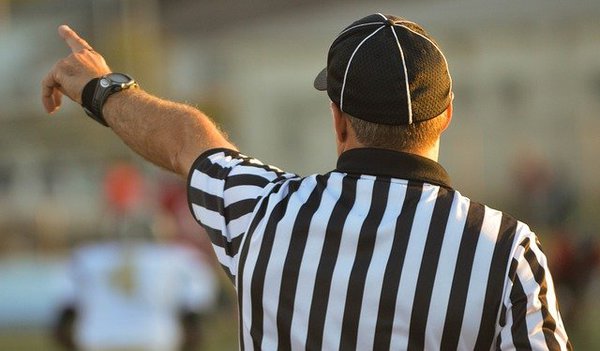Listening to music while racing can be a motivation and a relieving distraction from your tired legs; I love listening to music while running; allowing the music to flow through my blood and vein gives me this feeling that I can keep moving.
However, are headphones allowed in triathlons? Triathletes are prohibited from using headphones/earphones or any other similar device in a triathlon while racing, including cellphones, and are penalized for violating the rule. Despite the welcomed motivation, music can be a huge distraction, especially when failing to notice the surroundings. A slight mistake can result in an avoidable accident.
The use of headphones in triathlon is a heavily debated topic, but officials did not come up with the rule out of the blues.
The top priority of officials is to ensure safety, and listening to music might jeopardize it. But recently, due to athletes’ demands, the rules have been relaxed in some events to accommodate some audio devices; however, they cannot be used on all occasions. (source)
This is better than headphones being outrightly banned, right! But the majority of organizers completely ban any audio device in the race.
Although you cannot use headphones while racing, it’s perfectly fine to train with them. Check out the headphone I personally like in my list of Best Triathlon Battle-Tested Budgeting Gear

Why are Headphones Discouraged In Triathlon?

Remember, all participants’ safety in a triathlon race is paramount, so officials came up with rules to ensure this safety.
Also, aside from safety, it gives uniformity to the game. It is more about leveling the playing field for all participants. Here are a couple of reasons why headphone is discouraged in triathlon:
Distraction
When a runner has his earplug on during a triathlon race, he becomes less aware of his surroundings; thus, he misses crucial details from the instructor or other participants. However, officials do their best to remove all forms of hazards from the course.
There is only so much they can do as some events are out of their control. Sometimes, nature can decide to throw its curveball to the game while, in some cases, clueless humans. If by chance any of these events occur, it is very vital to listen to life-saving instructions that may otherwise be missed if your ears are plugged, thus making you more susceptible to unforeseen danger.
Low concentration
Generally, in a race, audio cues are used to signal so that runners know when to start or stop the race. Blaring music through your headphone might make you lose focus such that you miss out on these instructions or become less aware of your environment.
For example, if the road used for racing in a triathlon is opened to cars and other traffic, listening to music can be a grave mistake and result in severe accidents and injury.
The reason is that you might miss Signal from oncoming traffic and end up causing an accident for yourself and people around you. In this case, hearing instructions and focusing on your environment is crucial for safe competition, and wearing headphones may compromise this.
Cheating
Some unethical officials might use the headphone for illegitimate help; remember, some events might relax the rules to accommodate a portable listening device; however, it must not be capable of communication as this can be used to cheat during the event.
Even when the rule is relaxed, it still doesn’t apply to those competing for medals, prize money, or award. Headphones are completely banned for people competing in these categories.
Reduces accident
We have already established that loss of concentration might lead to an accident, and listening to music while racing a triathlon can make you lose concentration. Listening to music while cycling is not advisable because cycling requires utmost concentration.
Music can be a sure way to lose focus, especially during bike riding. Any slip-up might lead to accidents and injuries. For triathlon officials to ensure the participants’ safety, using headphones during the event is discouraged or banned in some cases.
Besides all these reasons, a triathlon is a game that is meant to be enjoyed.
However, it is undeniable that music gives motivation, but it can prevent you from connecting with your surrounding. When racing a triathlon, you may want to talk to others, laugh, and enjoy your surrounding!
Is there a Penalty for Breaking the Headphone Rule?

Absolutely, in as much as it is a rule, there are consequences for breaking it. The use of headphones falls under equipment infraction, and it incurs a variable time penalty.
If you are found violating any of the rules and variables time penalty is awarded; the awarded time is added to the participant aggregate finishing time.
Variable time penalty varies depending on the distance category of the event and the number of times an offense is committed. The time awarded increases after each violation (source).
If a participant violates the rule three times, he/she will get disqualified.
You can also check out our post about what is a penalty box and how to avoid it to ensure you are familiar with the rules.
Can I At Least Use earphones While Training?

Of course, listening to music is not bad at all; it has a positive influence on the athlete. Mostly, music motivates you and helps you tackle the challenges of racing.
According to research, music is good for athletes because it gets their minds into optimal condition to face the challenges ahead.
Check out our tested and recommended waterproof mp3 that you can use in your swim session (Amazon link)
Music improves your mood and gives you a positive vibe, but it can also block you from connecting with your environment.
While music is a nice tool during training, you don’t want to become too dependent on it.
This is because not all competition allows headphones, especially if you are competing for an award or prize money. In this case, training without headphones is recommended as you can get other things to motivate you.
In summary, it boils down to whether you prefer music or not, but some cases require you to train without it if you can.
What Types of Earphones Can I Use While Training for a Triathlon?
Some Earphones will serve you well while training for a triathlon. They possess specific features that make them ideal for triathlon.
Check out our tested and recommended Sony waterproof mp3 that you can use in your swim session (Amazon link)

Generally, when getting this type of headphone, there are features to look for; the headphone must have a strong clamping force and stay firm even when racing in harsh terrains. An ideal training headphone should be water-resistant; the triathlon activities bring you in contact with water, So a training headphone should not be easily damaged by water.
Alternative Ways to Stay Motivated
It is no wonder that triathletes are well-respected; staying motivated for one sport is hard enough but staying motivated for three sports takes it to a whole new level, especially when you have to do it without music too.
Training for three different sports requires a lot of motivation, dedication, and hard work.
Oftentimes, the fact that you have to participate in three sports makes it less boring and monotonous.
You could switch from cycling to running while training, but you need all the motivation you can muster to be the best on the D-day. Here are tips that will keep you motivated during a triathlon:
1. Have a Clear Goal
Motivation doesn’t have to start on the day of the competition; it should start when you decide to participate in the event. One important thing that will always keep you motivated is your goal; without having a clear aim in mind, there is no light at the end of the tunnel for you.
When you set a targeted goal, you automatically work towards achieving those goals. This way, you can stay motivated during training and competition.
Furthermore, you can get a watch and monitor your progress in each training and while racing as you have to keep your eye on the goal.
2. Develop a Plan and stick to it
Developing a plan makes it easier to achieve your goal; moreover, you can employ a coach to train you through the event.
Sometimes having a plan and working within the plan takes you a step closer to your goal. However, overdoing your training might become overwhelming; thus, you are left over-worked and de-motivated.
3. Be spontaneous
Practicing the same routine all the time in a bid to be consistent can actually de-motivate you. However, there is a way to spice up your training.
You can also celebrate little wins when you tick some goals off your list. This way, you can keep yourself motivated.
4. Participate in an early-season race
Boosting your confidence is an excellent way to keep you motivated. Entering an early-season tri race can help you achieve this; not only does it blow away doubt, but it also allows you to identify your weak point.
Here you get to analyze how good or bad you are with transitioning and how to tackle it.
5. Join a local triathlon club
This is one of the easiest ways to get motivated; training with like-minded people who have the same goal can boost your confidence.
You can size different competitors, compete with different odds and enjoy yourself while you are at it.
I feel this is a good decision because you can use people around you to better your skill and it is much more enjoyable when you train and race with people.
6. Watch Youtube motivational videos.
Here are two nice examples,
Conclusion
Before you enter a competition, be sure to check whether headphones are allowed; the rule is not upheld in all events.
If music is your motivation and wants to compete with headphones, there is a slight chance that it is allowed by the organizer, so check whether the rule can accommodate it.
The more suitable and sustainable approach is to be independent of music for motivation.
Also, check out our post on “Do Olympic Swimmers Wear Nose Clips Or Earplugs? Which One To Use!“


